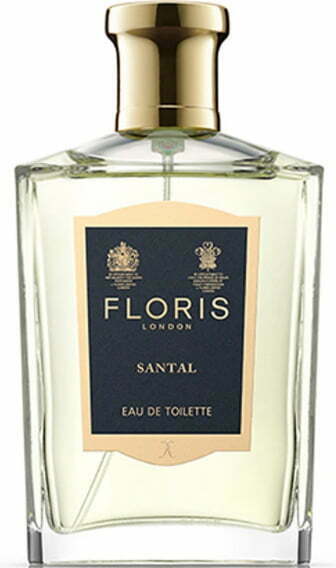HANDE YENER

Makbule Hande Özyener (born 12 January 1973), better known by her stage name Hande Yener, is a Turkish singer. She made her debut in the early 2000s, and since then has become a prominent figure of Turkish pop music with numerous songs that topped the music charts. Alongside her music career, she is also known for her choice of clothes and has renewed her image multiple times over the years. She has occasionally made changes in her music style as well; for a while, she started making electronic music, but this period was short-lived and she again returned to performing pop music. During her career, both her professional and personal life have been among the favorite subjects of columnists, and her rivalry and on and off feud with Demet Akalın were covered in the tabloids from time to time.
Yener was born in Kadıköy, Istanbul. After finishing her middle school she decided to go to a conservatory, but after facing objections from her family, she enrolled in Erenköy Girls High School. She left the school while in the second grade and got married. To achieve her dream of becoming a singer, she tried to get in contact with Sezen Aksu, and while she was working as a shop assistant she met Hülya Avşar who later introduced her to Aksu. She worked as Aksu’s backing vocalist for a while, before working with Altan Çetin who helped her with preparing her first studio album, Senden İbaret, which was released in 2000. She later released the MÜ-YAP certificated album Sen Yoluna… Ben Yoluma… (2002), followed by Aşk Kadın Ruhundan Anlamıyor (2004) and Apayrı (2006). These albums made her one of the successful artists inside Turkey in the 2000s. With the album Nasıl Delirdim? (2007), she shifted her style to electronic music and distanced herself from pop music for a while. During this period, which formed the first decade of her career, many of her songs became hits, including “Yalanın Batsın”, “Sen Yoluna… Ben Yoluma…”, “Acele Etme”, “Kırmızı”, “Kelepçe”, “Aşkın Ateşi”, “Kibir” and “Romeo”.
Although Yener’s electronic songs received critical praise, she suffered commercial loss compared to her previous works, which resulted in several problems with her producing partners, causing a change in the production company and label twice. Hence, Yener’s era of electronic music ended in a few years and with the pop album Hande’ye Neler Oluyor? (2010) she returned to pop music charts. The pop albums released in this phase of her career were often compared to her initial albums, and although they received mixed reviews in general, many of their songs, especially those from Mükemmel (2014) and Hepsi Hit Vol. 1 and Vol. 2 (2016–17) topped the music charts in Turkey. Among these songs were “Bodrum”, “Ya Ya Ya Ya”, “Naber”, “Sebastian”, “Mor”, “Bakıcaz Artık” and “Beni Sev”.
Throughout her career, Yener has been influenced by a number of artists, including Madonna to whom her image, clips and performances were often compared. In the 2000s, she was one of the few artists who had an album that sold over 1 million copies in Turkey. In 2013, she was the Turkish singer whose music videos were viewed the most on YouTube. By the end of the 2000s, she was known as a gay icon inside Turkey, and made some statements demanding the advancement of LGBT rights in Turkey, but she became the target of criticism after being silent about LGBT issues in the following years. In the second half of the 2010s, she expanded the scope of her work and worked periodically as the operator of various night clubs. Yener has received five Golden Butterfly Awards, as well as four Kral Turkey Music Awards and has received various other awards and nominations.
“I used to think that I couldn’t make music. That is why I decided to form a family instead. Then I started to have a crisis during my marriage. I started asking myself a question, ‘why am I unhappy?’ I loved working in the store, but nothing would reduce my energy. I had to do more, I’ve always had this energy inside me and limiting it had made me sad. When I was home, I would start to be an unhappy person. So I spoke to my then-husband, my son’s father. He reacted in a normal way, and said ‘do it'”
Makbule Hande Özyener was born on 12 January 1973 in Kadıköy, Istanbul. She is the younger of Yıldız Yazıcı and Erol Özyener’s (1934 – 30 December 2012) two daughters, being five years younger than her elder sister. Her first name was chosen as Makbule, after her paternal grandmother.[6] She had an economically moderate family. Her mother, Yıldız, was a housewife, while her father, Erol, worked as a professional football player for a while, and later worked at Ford Otosan. Yener grew up in Erenköy, Kadıköy, and since an early age made it known that she wished to become a singer. After finishing middle school, she decided to go to a conservatory, but faced objections from her family, who sent her to Erenköy Girls High School instead. She left the school at the second grade, about which she later said: “My citizenship teacher was obsessed with me, on top of that I hated literature, I didn’t even go to the exam sessions. My music grades were always 10 though.” After her father fell ill with alcoholism, her parents divorced when she was 17 years old, and Yener later said that it caused her “great sufferings”. She married customs broker Uğur Kulaçoğlu in 1990 in Fatih. In the same year, her son Çağın was born in October. As she got older, Yener and her husband Uğur began to have disagreements on various issues. The couple eventually divorced in 1994.
During this period, she began to meet music mentor Erdem Siyavuşgil, who said that she had the potential of becoming a soloist. Yener later began to take singing lessons and made numerous efforts to get in contact with Sezen Aksu. Subsequently, she began working as a sales representative at the Mudo store in Suadiye, knowing that many artists would pass by the store, and that way she could “reach Aksu through the celebrities” who would shop in the store. She later found Aksu’s phone number, and left her notes everyday, asking her for a chance to become her backing vocalist, but did not receive any response. Many singers who came to the store, including Nilüfer, Şehrazat and Sertab Erener, left her wish for contacting Aksu unanswered. Yener started to lose her hope of becoming a singer, until she met Hülya Avşar, who promised her that she would make an appointment for her with Aksu. In April 1993, Yener met Aksu through Avşar’s help, and performed the songs “Yalnızlık Senfonisi” and “Oyun Bitti” for Aksu during the meeting. After winning Aksu’s favor, she began working for her and for two years served as her backing vocalist and assistant. In December 1994, she made her television debut as a vocalist in Cem Özer’s program Laf Lafı Açıyor. To work in bars, she stopped working for Aksu and for a number of years performed at various places in Turkey. To prepare her first album, she contacted Aksu again and started the preparation process. With Aksu’s recommendation, she signed a contract with DMC.













